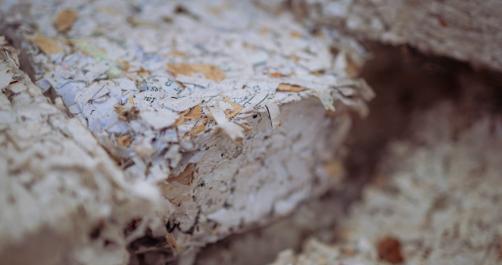
The University of Pécs continues to demonstrate how education, sustainability, and community service can intersect to produce tangible benefits for those in need. In February 2025, a group of students from the Mihály Babits Primary and Secondary School collaborated in a 50‑hour community service project to produce heating briquettes from recycled paper, sawdust, and water. The briquettes, tailored to meet the needs of a disadvantaged family for an entire heating season, stand as a concrete example of what can be achieved when university resources, local industry partners, and committed students come together.
Community Service as a Cornerstone of Pécs Education
At the University of Pécs, compulsory community‑service hours are not an isolated requirement but a vehicle for cultivating civic responsibility. Students are encouraged to apply academic knowledge to solving real‑world problems, a philosophy that underpins the university’s status as the greenest institution in Hungary. As the Chancellor’s office has emphasized, such projects foster a lifelong commitment to environmental stewardship and social equity.
Why 50 Hours Matter
Working through 50 service hours allows students to immerse themselves in the logistics of project planning, stakeholder engagement, and sustainable production. The Babits students’ successful briquette production required a coordinated effort: sourcing raw materials, designing a pressing workflow, and coordinating distribution. These tasks translate directly into marketable skills in project management, supply‑chain coordination, and community outreach.
The Briquette Project: From Concept to Delivery
The initiative’s core idea was simple yet powerful: convert readily available waste into usable energy. By compressing paper, sawdust, and water into briquettes, the students created a renewable heating medium suitable for use in wood stoves or pellet burners.
Materials and Process
To maintain quality and safety, students followed a proven protocol:
- Collected waste paper and sawdust from local recycling centers and the school’s own bins.
- Mixed waste with water to create a pliable slurry that could bind the briquettes.
- Shipped the mixture through a small-scale press that kerned the material into uniform bricks.
- Allowed the briquettes to dry over a weekend before packaging.
Each step was supervised by a physical‑education faculty member with expertise in environmental projects, ensuring that production met safety standards and that the final product possessed adequate calorific value.
Overcoming Operational Hurdles
Like any grassroots initiative, the project faced logistical challenges. Sourcing sufficient sawdust demanded partnerships with local farms and a wood‑processing facility, while the temporary storage of wet materials required a dedicated drying area. To address these issues, students negotiated a brief use of a municipal construction yard and worked in shifts to maintain production momentum. The project demonstrates that even limited resources can be stretched by creative problem‑solving and stakeholder collaboration.
Linking Waste Reduction to Energy Generation
The recycled briquettes offered an alternative to wood, coal, and imported fuel pellets, thus reducing dependency on imported energy. Notably, the biogenic carbon emitted when the briquettes burn is largely offset by the carbon that trees will eventually reabsorb, aligning the project with the United Nations Sustainable Development Goal to promote responsible consumption and production.
Aligning with National and International Benchmarks
The University of Pécs’ involvement in this initiative earned it recognition from the Hungarian Educational Authority and the National Teachers Chamber, solidifying its reputation as a leader in eco‑focused education. While the national awards focus on curriculum integration, the Babits project highlights the importance of practical, experience‑based learning that directly benefits local communities.
Lessons for Replicating the Initiative in Other Communities
Drawing from the success of the Pécs project, community leaders, school administrators, and student organizations can adapt a similar model. Here are three actionable steps to facilitate the process.
1. Build a Multidisciplinary Task Force
Invite stakeholders from education, local industry, and governmental bodies. A diverse team ensures that expertise in waste handling, equipment maintenance, and community outreach is available from day one.
2. Secure Sustainable Funding and Equipment
Approach local businesses and philanthropic foundations for seed funding. Even small grants can cover the cost of a portable briquette press. In many cases, equipment donations range between 30,000–50,000 HUF, which, when combined with in‑kind contributions, can significantly reduce capital outlay.
3. Quantify Impact and Report Results
Track metrics such as kilograms of waste diverted from landfills, heat output measured in kilowatt‑hours, and the number of families served. Publicizing these numbers in local news outlets will raise awareness and potentially attract additional partners.
Getting Involved: How You Can Take Action Today
Whether you’re a student, a faculty member, or a member of the local community, there are pathways to join similar sustainability initiatives. Feel free to reach out to your university’s community service office to learn more about current projects and how you can contribute. You can also start a small pilot program by gathering recyclable materials from your household or workplace and experimenting with briquette production using readily available press kits.
Interested in exploring further? Read more about Project Green University initiatives at the University of Pécs.
Want to start your own waste‑to‑energy project? Learn how to design a small‑scale briquette press and secure community partnerships.
Ready to help a family in need? Contact the university’s community service team and ask how you can get involved.
Share this article if you believe that local action can make a global impact. Let us know what initiatives you’re working on in the comments below.
Conclusion
The University of Pécs’ recent briquette project offers a replicable model for turning everyday waste into meaningful social support. By combining structured community service hours, interdisciplinary collaboration, and a clear sustainability vision, the program not only alleviated a family’s immediate heating crisis but also furthered the campus’ commitment to the green agenda. Lessons drawn from this effort can guide future projects worldwide, proving that thoughtful use of local resources yields both environmental and humanitarian benefits.

